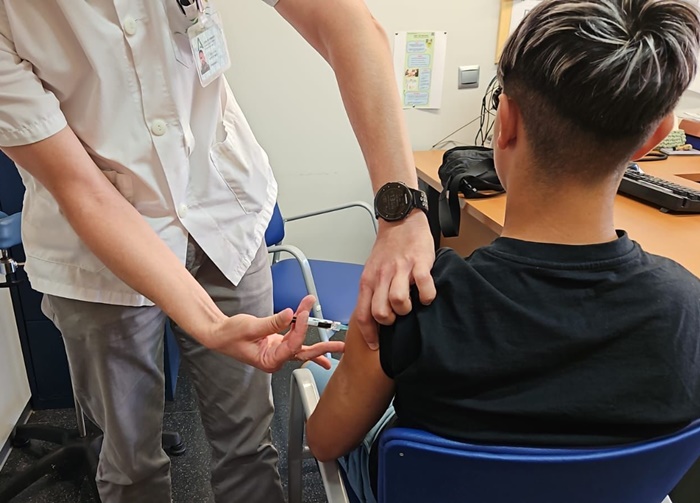In the first month of the campaign, a total of 3,850 Huelvan residents aged 13 to 18 years were vaccinated against HPV.

Compilation. Total 3,850 young people aged 13 to 18 were vaccinated in the province of Huelva against the human papillomavirus (HPV). in the first month of the campaign promoted by the Andalusian Vaccination Plan, which the Ministry of Health and Consumer Affairs is promoting through the General Directorate of Public Health and Pharmaceutical Regulation and the Andalusian Health Service.
Since its introduction, on May 21, coverage of children aged 14 to 18 years has been reached at 30.6% (those who turned 13 this year were vaccinated last year, when they turned 12), figure , which usually reaches several months after the start of the campaign, indicating the great interest generated by vaccination against the papilloma virus.
Last Wednesday, June 19, an open vaccination day was held in public health centers throughout Andalusia, targeting teenage boys in the Autonomous Community who had not previously received an anti-HPV dose. On this day, 552 people were vaccinated in Huelva, significantly higher than the average number of vaccinations carried out in previous days.
Until May last year, this vaccine was included in the official vaccination schedule for all teenage girls aged 12 to 18 years (with coverage of more than 90%), and from 2023 also for boys aged 12 years and older. Subsequently, the indication for boys was expanded to 18 years of age to cover the entire age group.

We must be grateful for the efforts and work of all the professionals who spent this day, both from the Andalusian Health Service, especially the nurses, and from the provincial representatives of the departments of vaccination, pharmacy, logistics, Care Strategy and the Ministry of Health and Consumer Affairs. especially from the Andavac team and the Directorate General of Public Health and Pharmaceutical Regulation itself. In addition, the success of this vaccination is also due to the responsibility shown by vaccinated children and their families.
The importance of HPV vaccination
HPV affects both sexes, so getting vaccinated as early as possible during adolescence is important. With a single dose, you can reduce the transmission of the virus and thereby prevent the risk of cancer. It also prevents the most common sexually transmitted infection between men and women, and also prevents the persistence of this infection, which leads to the development of both types of cancer. .genitals and head-neck.
The virus is usually acquired through sexual contact (80% of women and men become infected with it), and in most cases it goes away over time, but in some women (10-15%) it does not go away, leading to a higher risk of developing cervical cancer. . It has been noted that in men the prevalence of infection is higher than in women, and HPV persists longer in the mucous membrane, especially the oropharyngeal and anogenital, and can lead to the appearance of cancer in these locations.
This type of cancer takes more than 10 years to develop, so it requires a long period of time to detect, treat and cure it. This infection does not cause discomfort or symptoms, so screening can tell you if it exists.
While vaccination is the best prevention, experts recommend other preventive measures such as using condoms, which reduce the chance of transmission, and women participating in cytology screening programs as they can detect infections early, which could be abnormal cervical cells. treatment before cancer appears. Screening reduces the incidence and mortality of cervical cancer by 70 to 80 percent and should be performed in women aged 25 to 65 years.
In fact, the cervical screening program began to be piloted in the province of Cadiz in February of this year, and from this summer it is planned to gradually implement it in age groups for women from 25 to 65 years. Thus, women of the first planned age groups will begin to receive letters at home with invitations to undergo screening for cervical cancer.
